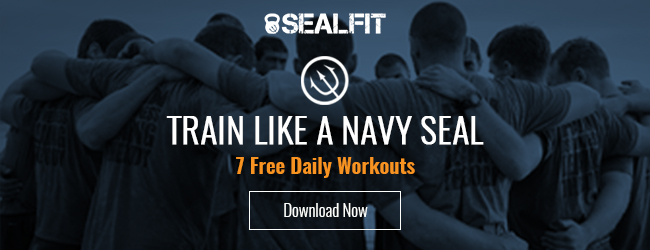Nutrition is one of the four pillars of an effective fitness program; the others are exercise, recovery, and consistency. While a lack in any one of these areas can literally make or break your efforts, many SEALs and other competitive athletes say that their diets contribute at least 50% to their success. What, how much, and when to eat can be very confusing, due in some part to the fact that everyone’s body responds differently to training, diet, and supplements.
Here are some general rules to go by:
Eat smaller meals throughout the day. SEALs and competitive athletes alike need to provide their bodies with enough fuel to train and perform at top levels. With the exception of missions, SEALs usually plan to eat 4 to 5 meals a day. This practice optimizes effort by maintaining a constant blood sugar level, avoiding the energy roller coaster.
Plan your meals and mealtimes using the 1, 2, 3 rule. The 1, 2, 3 rule refers to the ratios between fat, protein, and carbohydrates. This helps you determine “what” you eat. “When” you eat is another important factor. Protein right after PT, for example, optimizes the effectiveness of the training because it is the building material for hungry muscles.
Eating a large amount of carbohydrates right before bed, on the other hand, is counterproductive and can result in unwanted fat. Carbohydrates are the preferred energy source. The majority of them should come from foods that contain complex carbohydrates; e.g., bread, crackers, cereal, beans, peas, starchy vegetables, and other whole grain or enriched grain products. Fruits are also loaded with carbohydrates. During training, consume more than four servings of these food groups daily.
Water intake is vital. STAY HYDRATED! You should consume up to four quarts of water daily. Drink water BEFORE you feel thirsty. Substances such as alcohol and caffeine increase your body’s need for water. Consumed in excess, these substances will harm your body and hinder your performance.
There are varied opinions on the use of nutritional supplements. Some athletes are better stocked than a pharmacy while others believe that a good diet is all you need. In BUD/S, based on the type of training students undergo, protein and a multivitamin supplements are generally allowed, but these must be approved by the BUD/S Medical Department.
Because every individual has unique needs based on genetics, lifestyle, activity level, goals, etc., proper nutrition is a long-term project and lifestyle change. Some things that you try will work and others will not. There aren’t any of the quick-fix solutions that much of the current fitness industry thrives on, but if you combine a sensible nutrition plan with regular exercise you will see positive results from your training.
Check out the nutrition products available in our store.

